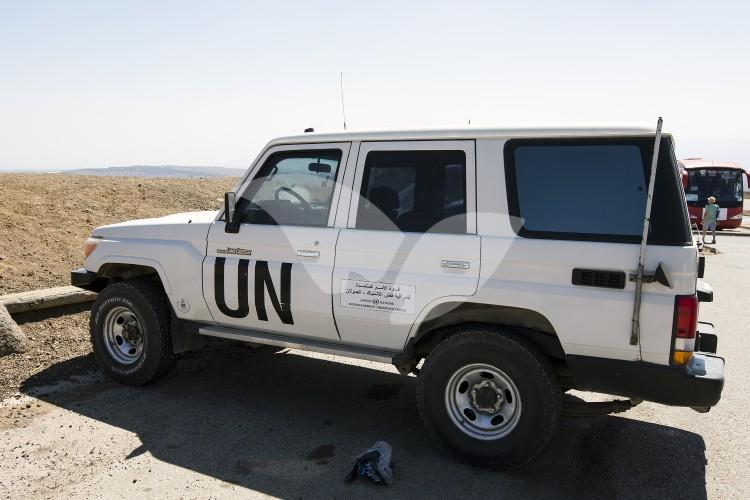B'Tselem Rejects Criticism, Says UN Session Not Stacked Against Israel
Jerusalem, 13 October, 2016 (TPS-IL) -- The B’Tselem human rights watchdog said in a statement Thursday that organization Director General Hagai El-Ad’s would address the issue of settlement construction at a special session of the UN Security Council this upcoming Friday, but an organization spokesman said the group’s appearance at the world body was not a political move.
The session, “Illegal Israeli Settlements: Obstacles to Peace and Two-State Solution“, was initiated by the Palestinian delegation and will be co-chaired by Angola, Egypt, Malaysia, Senegal and Venezuela. B’Tselem’s spokesman Amit Gilotz told Tazpit Press Service (TPS) the session will not recommend concrete policy decisions, but Israeli diplomatic sources are concerned that the hearing could be a first step towards a full-fledged Security Council resolution denouncing Israeli communities in Judea and Samaria, possibly to be supported by the United States before President Obama leaves office in January.
In a press release ahead of the appearance, B’Tselem said El-Ad will stress that “after almost half a century of Israeli military control over millions of people, the occupation is only deepening, while the settlements – one of the main reasons for daily violations of Palestinians’ human rights – continue to expand. Under these circumstances, it would be unreasonable to consider the occupation temporary or to believe that Israel intends to change this reality in the foreseeable future.”
But when asked how El-Ad’s appearance in a political setting could be considered “non-political,” Gilotz said that the group’s testimony is intended to get the international community to act, but he stopped short of specific policy recommendations.
“We don’t give instructions, we don’t make suggestions of what they should do. For that, there are politicians and statesmen,” Gilotz said. “The idea is to encourage the international community to stop accepting the violations of human rights and international law that Israel is committing.”
Reaction from the Israeli political stage to the announcement of El-Ad’s upcoming testimony came quickly. Israel’s permanent representative to the UN, Danny Danon, slammed the decision to appear at the meeting, calling it “diplomatic terrorism against Israel.”
MK Ofir Akunis (Likud) was less subtle, invoking a 2nd century prayer asking God to ensure that Jewish spies not be able to harm the Jewish people.
Further to the middle of the political spectrum, Yesh Atid party chairman Yair Lapid described the group’s participation as “a declaration of divorce” from Zionism.
Gilotz was unmoved by the criticism. Asked whether B’tselem’s appearance could be interpreted as part of a wider anti-Israel move, Gilotz said only that he could not comment on a speculative suggestion. But he stressed that a UN session initiated by the Palestinian delegation is not necessarily stacked against Israel.
“The UN is the body that gave its stamp of approval to the State of Israel, and in general Israel enjoys excellent relations with the international community. And her desire to be considered one of the enlightened, democratic countries means we have to also maintain certain standards that we are not maintaining at the moment,” Gilotz concluded.


